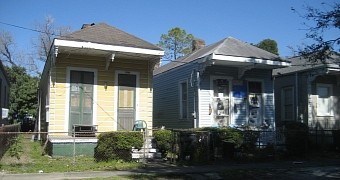The Federal Communications Commission (FCC) has internally approved a plan to allow low-income Americans to request subsidies for broadband Internet access via the Lifeline program.
Introduced in 1985 during the Reagan administration as a subsidy of $9.25 / €8.15 per month, the Lifeline program allowed poor Americans to afford land telephone lines.
As time went by, the Lifeline program was extended to mobile plans as cell phones proliferated amongst the population, and now the FCC is currently pondering ways of extending it to include high-speed Internet subscriptions as well.
The subsidy will remain $9.25 / €8.15 per month
According to the FCC announcement, the value of the subsidy would remain the same, and to lighten the burden off telecom companies, the FCC also approved that Lifeline candidate eligibility should be handled by a third-party.
The FCC is currently examining three possibilities: establishing a national verification service, integrating Lifeline verifications with other federal needs-based programs, and the option of using vouchers when paying for Internet-access plans.
As usual for any typical FCC discussion, the whole affair quickly turned political, with each member of the commission taking the side of his own party, Democrats being for the proposal, while Republicans opposing it due to wasteful and fraudulent abuses to the Lifeline program in previous years.
The Lifeline program has lost track in recent years
The program hasn't been really that successful in recent years, declining from $2.2 / €1.94 billion funds issued in 2012, to only $1.6 / €1.41 billion in 2014.
The commission also noted that only 48% of Americans with yearly income of $25,000 or less have Internet access at home, and 50% of low-income Americans used smartphones to access the Internet, and many of them were forced to drop out of their broadband plans due to high costs.
"Broadband has become essential to participation in modern society, offering access to jobs, education, health care, government services and opportunity. Unfortunately, income remains a significant barrier to broadband adoption," reads the official FCC statement.
These policy updates aren't yet set in stone, being only a request for comments on behalf of the FCC, and the true updates to the Lifeline program should be expected later on this year.

 14 DAY TRIAL //
14 DAY TRIAL //